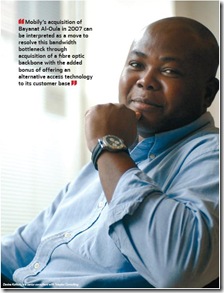
In recent years, the African telephony market has been dominated by the phenomenal growth of wireless services. Many fixed line operators have had to shift to wireless after suffering continual copper cable thefts and vandalism. Now the future of telephony on the continent has turned to a race to lay fibre to meet growing demand for broadband services. No-where is this more evident than on the streets of key South African cities where government and telecoms providers are pushing ahead with infrastructure plans ahead of football tournaments in 2009 (Confederations Cup) and 2010 (FIFA’s World Cup).







